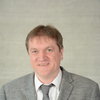The approach is a prototypical development of a so-called urban data platform, linking sensor data streams and 3D city models to enable and visually support spatio-temporal data analysis.
The Centre for Geodesy and Geoinformatics (ZGG) bundles research activities dealing with acquisition and processing of spatial information. Spokesman of the centre is Prof. Paul Rawiel.
In addition to modern developments in surveying, photogrammetry and remote sensing, the topics cover a wide range, from sensor technology to information processing and visualization. With the right selection and combination of different sensor principles and evaluation methods, new and innovative approaches for cooperation in strongly interdisciplinary fields of work can be found.
The possible combinations regarding sensors include optical, mechanical and electromagnetic measuring principles. For example, LIDAR sensors are used, which were developed for construction-related surface recording, mobile mapping or autonomous driving. Such systems often integrate camera, laser and inertial measurement technology.
On the analysis side technologies are used to perceive, understand, learn and act on corresponding systems. Machine learning is a technology that creates new innovations without having to develop new programs for it. For example, objects or their properties can be automatically recognized and evaluated in space.
As a further approach of data evaluation, methods of geoinformatics are being developed to process the spatial data and make it available in new contexts. The focus here is on 3D geodata infrastructures and geographic information systems (GIS).
-
CircularGreenSimCity
view page for moreDetails -
Digital twin
view page for moreDetails![Cityscape with connecting dot technology of smart city conceptual [Image: Adobe Stock/stnazkul]](/fileadmin/Dateien/Forschung/_processed_/d/3/csm_AdobeStock_230291089_ba33aca91c.jpeg)
-
FORTH-BW
view page for moreDetails![[Image: Hochschule für Wirtschaft und Umwelt Nürtingen-Geislingen] FORTH-bw Logo](/fileadmin/Dateien/Forschung/_processed_/5/4/csm_logo_forth-bw_5a0186a87f.png)
-
Good Vibrations
view page for moreDetails![[Image: Jürgen Pollak]](/fileadmin/Dateien/Forschung/_processed_/3/f/csm_-_R_Juergen_Pollak_HFT_18.04.18-0091_a74bba6792.jpg)
-
Hire
view page for moreDetails![HFT aerial view building 1 [Image: HFT Stuttgart] HFT-Luftaufnahme Bau 1](/fileadmin/Dateien/Allgemeine-Hochschuldaten/_processed_/c/a/csm_allgemeinehochschuldaten-hft-stuttgart-luftaufnahme-bau-1_106f153a18.jpg)
-
iCity 2: DiaOpt4iCity
view page for moreDetails![[Image: HFT Stuttgart/iCity]](/fileadmin/Dateien/Forschung/_processed_/4/1/csm_iCity-Logo-DiaOt4_3f39e5151e.png)
-
iCity 2: Mobility4iCity project
view page for moreDetails![[Image: Mobility4iCity]](/fileadmin/Dateien/Forschung/_processed_/0/4/csm_Mobility4iCity_Foto_Gelbe_Baenke_dc8b9411be.jpg)
-
iCity 2: Streetmoves4iCity
view page for moreDetails![[Image: HFT Stuttgart]](/fileadmin/Dateien/Forschung/_processed_/8/4/csm_iCity-Logo-Streetmoves4_f634dc2250.png)
-
iCity 2: UDigiT4iCity
view page for moreDetails![[Image: HFT Stuttgart] Logo Projekt UDigiT4iCity](/fileadmin/Dateien/Forschung/_processed_/c/e/csm_iCity-Logo-UDigiT4_cdb14a7472.png)
-
INSPIRER project
view page for moreDetails![[Image: Changing Cities e.V.] Image of a building with a construction site. In the smartphone, an object appears via AR, which is supposed to represent the final building.](/fileadmin/Dateien/Forschung/_processed_/5/f/csm_INSPIRER_c5408f8a8b.png)
-
Pro.La-Fellbach
view page for moreDetails![[Image: Stadt Fellbach / Niessner Design GmbH] Luftbild des iba Projektgebietes „Agriculture meets Manufactoring“ in Fellbach](/fileadmin/Dateien/Forschung/_processed_/9/5/csm_Schraegluftbild_Projektgebiet_Quelle_Stadt-Fellbach-Niessner-Design-640x520_94aa740cd6.jpg)
-
SektorSim³
view page for moreDetails![[Image: HFT Stuttgart] SektorSim3 Logo](/fileadmin/Dateien/Forschung/Projekte/Projektlogos/SektorSim3_Logo.png)
-
3DPS-RTGIS project
view page for moreDetails![[Image: HFT Stuttgart]](/fileadmin/Dateien/Forschung/_processed_/e/2/csm_RT3DPS_Fellbach_2ea43fc410.jpg)
-
3ProzentPlus
view page for moreDetails![[Image: HFT]](/fileadmin/Dateien/Forschung/_processed_/d/6/csm_Logo_3ProzentPlus_1321db99a1.png)
-
ABOUT
view page for moreDetails![[Image: HFT Stuttgart / ABOUT]](/fileadmin/Dateien/Forschung/_processed_/1/c/csm_ABOUT-Projektlogo_63d1e402d9.jpg)
-
CIGS-Facade
view page for moreDetails![[Image: HFT Stuttgart] Fassade des CIGS](/fileadmin/Dateien/Forschung/_processed_/3/9/csm_CIGS-Fassade_Logo_4c19a693a4.jpg)
-
CityDoctor 2
view page for moreDetails![[Image: HFT Stuttgart] Grafische Darstellung Architekturmodell](/fileadmin/Dateien/Forschung/_processed_/7/b/csm_ProjektBild_df3761c5ba.jpg)
-
iCity 1: BIM-compliant building reconstruction
view page for moreDetails![[Image: HFT Stuttgart] BIM-Grafik](/fileadmin/Dateien/Forschung/_processed_/0/e/csm_BIM-Header_2da6a4aee8.png)
-
iCity 1: imaF – Natural ventilation
view page for moreDetails![[Image: Eric Duminil] Fensterlabor](/fileadmin/Dateien/Forschung/_processed_/c/b/csm_Forschung_Fensterlabor_ded7a7f1ba.jpg)
-
iCity 1: MUSI
view page for moreDetails![[Image: HFT Stuttgart] MUSI-Grafik](/fileadmin/Dateien/Forschung/_processed_/4/4/csm_MUSI-Header_4d8573cbb6.png)
-
iCity 2: ICT4iCity project
view page for moreDetails![[Image: HFT Stuttgart]](/fileadmin/Dateien/Forschung/_processed_/1/3/csm_iCity-Logo-ICT4_f2e78fa2b6.png)
-
iCity 2: IQG4iCity project
view page for moreDetails![[Image: HFT Stuttgart] Overarching goals and approaches of the impulse project "Buildings, neighborhoods and infrastructure"](/fileadmin/Dateien/Forschung/_processed_/1/8/csm_IQG4icity_Ziele_und_Ansaetze_70d9e24aa6.jpg)
-
MobiArch: End of congestion warning
view page for moreDetails![[Image: HFT Stuttgart] Landkarte Pforzheim](/fileadmin/Dateien/Forschung/_processed_/8/a/csm_a8_pforzheim_c0a8e9005b.jpg)
-
SensAR
view page for moreDetails![[Image: HFT Stuttgart] Person vor Hinweisschild](/fileadmin/Dateien/Forschung/_processed_/8/9/csm_Fyler_foto_300_4731c36171.jpg)
-
SimStadt 2.0
view page for moreDetails![[Image: HFT Stuttgart/ Romain Nouvel/ Eric Duminil] Logo von SimStadt](/fileadmin/Dateien/Forschung/_processed_/0/3/csm_SimStadt_Logo_00f42b5682.png)
-
Smart2Charge
view page for moreDetails![[Image: HFT Stuttgart] Logo Smart2Charge](/fileadmin/Dateien/Forschung/_processed_/8/8/csm_Logo_Smart2Charge_RGB-web_3d17babacb.png)
| Name & Position | E-Mail & Telephone | Competencecenter | ||
|---|---|---|---|---|
![[Image: Antje Salzmann***www.diefotograf] Gerrit Austen](/fileadmin/Dateien/Profilbilder/_processed_/d/4/csm_Austen_Aug-2014_d25614c3fe.jpg) | Professor, Study Dean Master Vermessung | +49 711 8926 2348 | 2/163 | Geodäsie und Geoinformatik |
 | Vice-President Research and Digitization | +49 711 8926 2663 | 1/121 | Geodäsie und Geoinformatik |
 | Professor | +49 711 8926 2610 | 2/210 | Geodäsie und Geoinformatik Industrielle Anwendungen der Informatik und Mathematik |
 | Full Professor | +49 711 8926 2966 | 2/546 | Geodäsie und Geoinformatik Industrielle Anwendungen der Informatik und MathematikDigitalisierung in Forschung, Lehre & Wirtschaft |
 | Professor, Study Dean Master PG | +49 711 8926 2529 | 2/164 | Geodäsie und Geoinformatik |
 | Vice Dean | 2/210 | Geodäsie und Geoinformatik | |
 | Professor | +49 711 8926 2629 | 2/149 |
| Name & Position | E-Mail & Telephone | Competencecenter | ||
|---|---|---|---|---|
 | Academic Staff | +49 711 8926 2423 | 2/281 | Geodäsie und Geoinformatik |
 | Forschung Mitarbeiter (FDM) | 7/004 | Geodäsie und Geoinformatik | |
 | Researcher | +49 711 8926 2320 | 2/344 | |
 | Academic/Research Staff Member (GeoInformatic) | +49 711 8926 2838 | 2/281 | Geodäsie und Geoinformatik |
 | Academic staff member | +49 711 8926 2732 | 2/246 | Geodäsie und Geoinformatik Industrielle Anwendungen der Informatik und Mathematik |
 | Academic Staff Member | +49 711 8926 2549 | 2/281 | |
 | Academic Assistant / PhD student | +49 711 8926 2704 | 5/0.61 | Digitalisierung in Forschung, Lehre & Wirtschaft Geodäsie und GeoinformatikIntegrale ArchitekturNachhaltige StadtentwicklungNeue Forschungsfelder |
![[Image: Florian Hammerich] Arkaden im Lichthof der HFT Stuttgart](/fileadmin/Dateien/Hochschule/_processed_/a/7/csm_hochschule-fuer-technik-bau1-arkaden_cfd8b4d4ff.jpg)